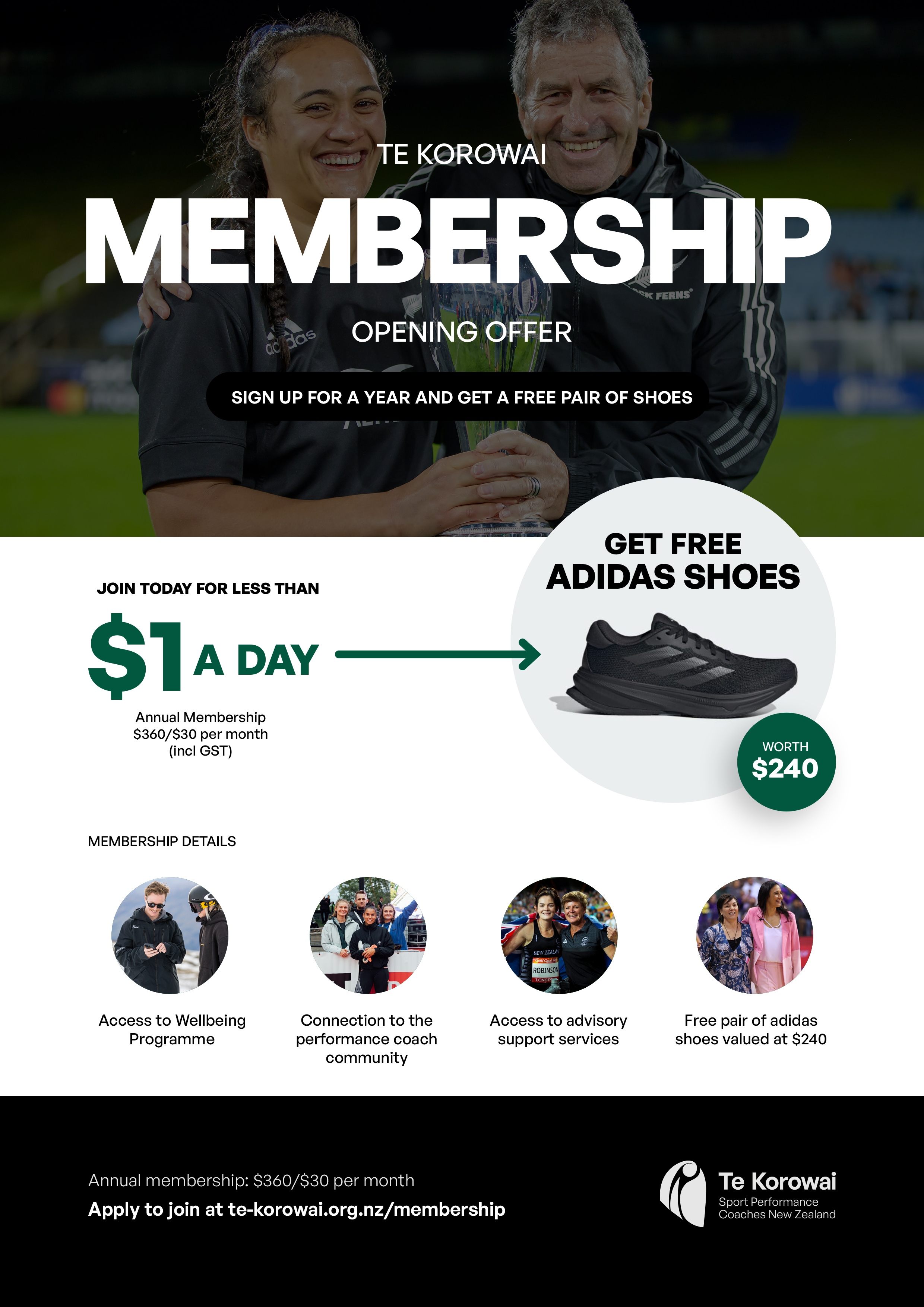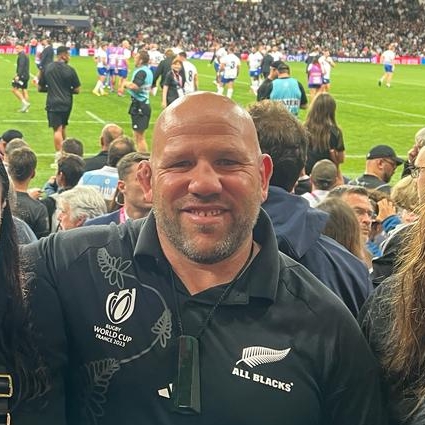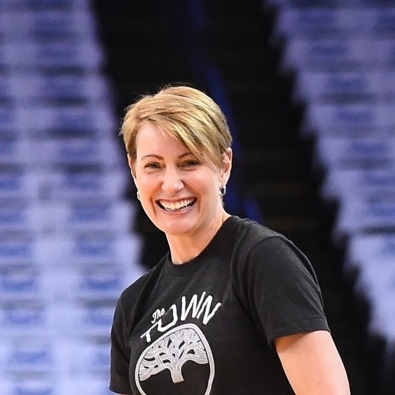September 2024 Issue No. 13
Kia ora koutou ngā matanga nō te ao hākinakina, tēnā kotuou.
Welcome to the latest edition of Coaches Kōrero.
Coaches Kōrero has been established to recognise and celebrate our Performance Coaching community in New Zealand.
What an amazing month of sport we had highlighted by the Paris Olympics. It was so good to see our athletes perform with such distinction and represent us so proudly on the world stage. It was also special to see our coaches being recognised and celebrated. Congratulations again to all those who were involved.
Likewise, we look forward to supporting and celebrating our Paralympic athletes and their coaches as they participate in the Paralympics. This month, the start of the Winter Olympic qualifying period is approaching, with Winter Games NZ hosting two World Cup events at Cardrona Alpine Resort—go, NZL!!
In this issue, we profile All Blacks Assistant Coach Jason Ryan and World Class Performance Coach Chelsea Lane, who shares her experience, including her time in the NBA.
Andy Longley shares a piece on dealing with What Now following a major event. He provides some key tools to navigate this time and some suggestions on how to recharge, reflect, and refocus so you can create a plan that enables you to move forward.
As highlighted in earlier communications, we aim to be a fully independent, sustainable representative body. To achieve that, we need to generate revenue. A key element is Membership. We need you to join!
The annual membership fee is $360.00, or you can establish a 12-month automatic payment plan and pay monthly ($30).
In return for becoming a member, you will immediately join a special community and gain access to a range of advisory services.
We believe we are building a compelling value-adding membership programme, so we encourage you to sign up.
If you would like more information, you can contact us on [email protected]
Ngā mihi,
Tom Willmott
Chair

We would like to extend a warm welcome to the following new Te Korowai members.
| Shane Bond | Cricket | Richard Dryden | Weightlifting |
| James Porter | Rugby | Daniel Bogue | SnowSports |
| Chris Knight | Athletics | Craig Kirkwood | Triathlon |
| Jo Morrison | Netball | Debbie Strange | Athletics |
| Debbie Fuller | Netball |
Jason Ryan
Forging his path from highly capable front row forward in club rugby to assistant coach of one of the most recognisable teams in world sport, the All Blacks, Jason Ryan, has become a coaching rarity in the process.
Always his own man, Ryan has rolled the dice and made brave decisions while being confronted with challenging
life dilemmas at times through his coaching odyssey but steadfastly stuck to his quest of traversing rugby’s coaching ranks.

Chelsea Lane
Chelsea Lane doesn’t back away from a challenge. The woman who once had to Google how many players were
on a basketball team is now the proud owner of two NBA championship rings and a reputation as one of the very best in developing high-performance systems.
“My whole reason for being on the planet is the facilitation of someone else’s dreams,” Lane says, a purpose that has taken her from Sydney to the South Island to San Francisco.

Andrew Longley
So, what now?
Andy is a team performance expert with a background in psychology & applied neuroscience, who has taken a few months off writing his article series for Coaches Korero titled The Art and Neuroscience of High-Performance Coaching, to share some thoughts on coach wellbeing and the post-Olympic period.
As the dust settles after an incredible Paris Olympic & Paralympic period, I thought it was a great time to share some thoughts on the ‘what now?’ question we coaches often ask ourselves after a pinnacle event. This event may be the Olympics or Paralympics for you, or it could be a World Cup, a major tournament, or it could be the end of your challenging season. Whichever it may be, it’s important to use the opportunity to reflect, learn, and gain perspective so we make better decisions going forward because we may be feeling flat, lost or unsure what’s next for us. For this reason, I thought it would be helpful to share a few suggestions that can help us recharge, reflect and refocus so that we have a plan in place to help us move forward.
Celebrate the Journey
Remind yourself of the incredible achievement of reaching the Olympics (or your equivalent), regardless of the outcome. Reflect on the journey, the challenges you overcame, and the growth experienced. It’s so important to give yourself credit for all the hard work and dedication you’ve invested.
Embrace Rest and Recovery
Just as our athletes need time to recover, so do us coaches. Allow yourself some downtime to recharge physically, mentally, and emotionally. Pinnacle events are hugely draining to us due to how much we commit and sacrifice during their pursuit. This rest is crucial for maintaining our long-term passion and effectiveness in our coaching careers.
Replace the Adrenaline
It’s very natural that as you headed towards your version of a pinnacle event you’ve been running on adrenaline and fumes for a while now. You may have had a plan in place for over four years and as the event draws closer, you’re doing every single thing you can think about to get your athletes and teams ready to perform on the highest stage. For some of us, we may have become conditioned to this adrenaline and for those of us who thrive with it, find a way to replace it so you’re not going ‘cold turkey’. This could be throwing yourself into your own health and fitness more or taking up a new sport or stretch goal.
Reflect & Learn
Before you start to refocus towards your next pinnacle event and launch again, take a concerted amount of time to reflect on your journey. Some great questions to reflect on may include: What worked well that you can replicate? What didn’t work that you can discard? Did you have the necessary skills, or will you upskill further? What unexpected things helped you that you could utilise again? What obstacles derailed you that you could prepare better for? Did you genuinely enjoy the journey and want to commit to another? Taking the time to properly reflect will help us make better decisions moving forward.
Reconnect Back with Family & Friends
It’s highly likely that you’ve dedicated yourself so much to your pinnacle event that you’ve had less time for friends and family. So, make time and space to spend quality time with them again. Take the time to reform connections and take the lead with this yourself. Also, if you’ve physically been away from your immediate family for a while, don’t rush
your reintegration – especially if it involves your children. Taking your time to assimilate back into your family’s existing routines can be a much better way than trying to change their routines now ‘you’re back’.
Plan for the Future
Once you’ve taken time to celebrate, recover, reflect and reconnect. It’s natural that you feel a little lost or directionless. Afterall, a pinnacle event has been in your sights for years and when it moves to our rear-view mirror, you can often struggle to replace the sense of purpose and drive. So, taking time to think about your coaching, your career, and your personal goals (now that you have a little more time up your sleeve) is a great way to decide on where and how you want to begin moving forward again with intent. Having something that you’re working towards again is a great way to move forward and alleviate this feeling of loss or a lack of direction.
Seek Support if Needed
Navigating through the period after your pinnacle event is likely to be a very tricky time for you as a coach. You’ve possibly been away from your support network for a long time, you’re may be experiencing a lull in your drive and sense of purpose, you may be experiencing self-doubt if you didn’t achieve all you wanted to, you may also be experiencing self- doubt if you overachieved and you’re not sure how. If any of these are the case for you, or you’re experiencing anything else which is impacting on your sense of wellbeing seek support. This support may be from your friends and family who know you best. It may be from your fellow coaches who understand your journey. Or you may want expert support because you’re not sure what you’re feeling and why. If this is the case, Te Korowai have your back and can help.
If you would like to see what wellbeing support Te Korowai offers our members, click here.
What I’d love for you to take away from this article is that based on your unique experiences from your own ‘pinnacle event’, you may be experiencing a lull in your drive, fulfilment, happiness or even career conviction. All of this is normal
and to be expected. So, I hope some of these suggestions resonate with you and help you move forward again, albeit
it with a little more pride and satisfaction with what you’ve achieved.
In my next article I’ll return to the series on the Art and Neuroscience of High-Performance Coaching. The tenth article in this series will focus on stretch learning and how to create a team environment which promotes this. Stay tuned.
Coaches at the Paris Olympics
PARA ATHLETICS
- Raylene Bates
- Michael Jacobs
- George Edwards
- Alan McDonald
- Tony Catchpole
- Hamish Meacheam
PARA BADMINTON
- Marianne Loh
PARA TABLE TENNIS
- John Tuki
PARA CANOE
- Leigh Barker
- Myka Nuku
PARA-CYCLING
- Damian Wiseman
- Elyse Fraser
- Matt Shallcross
PARA EQUESTRIAN
- Andrea Raves
- Frankie Webb
PARA-SWIMMING
- Simon Mayne
- Tom Onley
- Sheldom Kemp
- Matt Houston
- Carl Gordon
- Todd Mason
SHOOTING PARA SPORT
- Ricky Zhao
- Michael Johnson